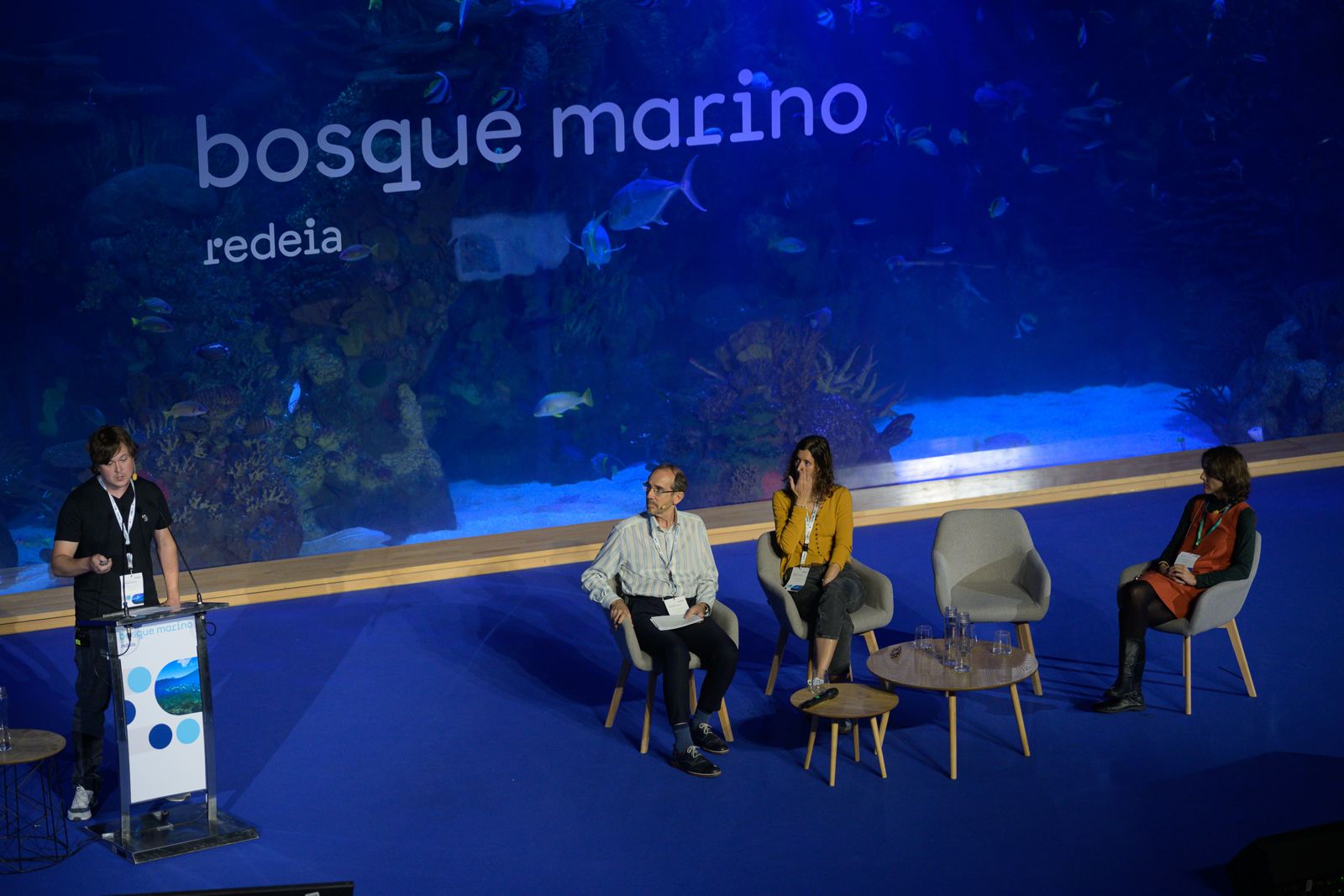The progress of the LIFE ECOREST project has been spread at national and international forums on marine restoration.
Specifically, the Institute of Marine Sciences (ICM-CSIC) presented the project at the ‘Marine Forest’ seminar, organised by Redeia on 1 and 2 October at the Oceanogràfic in Valencia, which was attended by researchers, representatives of public administrations and social and sectoral organisations. Over two days, participants discussed the challenges facing the ocean and innovative solutions to ensure its conservation and restoration.
During the meeting, the coordinator of the LIFE ECOREST project, Jordi Grinyó, addressed the project’s objectives, the involvement of the fishing sector and the development of new techniques to increase the number of species included in the restoration actions. He also explained the restoration strategy that has been designed and shared the initial results obtained, as well as the next steps and future challenges.
LIFE ECOREST was also invited to the Biodiversity Defence Conference, an event organised on 14 October by the COTEC Foundation, together with the National Biodiversity Future Centre (NBFC) and in collaboration with the Italian Embassy in Madrid and its scientific office, with the aim of exploring common experiences and perspectives in biodiversity protection in Italy and Spain. At this meeting, ICM-CSIC researcher Jacopo Aguzzi participated in the panel on marine biodiversity protection and restoration.
Aguzzi also presented new technologies for monitoring and restoring marine ecosystems at the summer school organised by the Geo-INQUIRE project in Sicily (Italy) from 16 to 23 October.
Knowledge exchange with other LIFE projects
Finally, an exchange of experiences and scientific knowledge took place in Sweden with the LIFE LOPHELIA project, which designs and produces artificial reef structures that are placed in the sea near the remaining natural reefs of the Lophelia corals. The aim is to provide existing corals with better conditions for propagation and to allow degraded areas to be recolonised.

